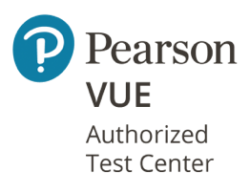Course Details
Topic 1 Fundamentals of Design of Experiment
- Introduction to Design of Experiment (DoE)
- Dependent and Independent variables
- Purpose of DoE
- Stages of DoE
- Factor, Level and Treatment
- Introduction to single factor experiments
- One-Way Analysis of Variance (ANOVA)
- Decomposition of the Sum of Squares
Topic 2 Factorial DoE
- Introduction to Factorial DoE
- Main Effects and Interactions between factors
- Why using Factorial DoE
- Two-Factors Two-Levels (2^2) DoE
- Regression equation for 2^2 DoE
- 2^2 experiment with Interactions
- Regression model for 2^2 DoE with Interactions
- Analysis of Variance (ANOVA) of 2^2 DoE
- Adding the third factor – 2^3 DoE
- ANOVA of 2^3 DoE
- Regression model for 2^3 DoE
- General 2^k DoE
- Analysis procedure of any 2^k DoE
- Blocking a replicated design
- Analysis a 2^k DoE with blocks as replicates
- Confounding a 2^k DoE in blocks
Topic 3 Fractional Factorial DoE
- Introduction to Fractional Factorial DoE
- One-Half fraction designs
- Confounding in partial factorial design
- Design resolution
- ANOVA of fractional DoE
- One-Quarter fraction designs
Topic 4 Screening, Modeling and Optimizing DoE
- Screening designs
- Plackett Burman design
- Taguchi design
- Response Surface Method (RSM)
- Central Composite Design (CCD)
Final Assesment
- Written Assessment (Short Answer Questions)
- Case Study
Course Info
Promotion Code
Your will get 10% discount voucher for 2nd course onwards if you write us a Google review.
Minimum Entry Requirement
Knowledge and Skills
- Able to operate using computer functions
- Minimum 3 GCE ‘O’ Levels Passes including English or WPL Level 5 (Average of Reading, Listening, Speaking & Writing Scores)
Attitude
- Positive Learning Attitude
- Enthusiastic Learner
Experience
- Minimum of 1 year of working experience.
Target Age Group: 18-65 years old
Minimum Software/Hardware Requirement
Software:
- Intellij https://www.jetbrains.com/idea/
Hardware: Window or Mac Laptops
Appeal Process
- The candidate has the right to disagree with the assessment decision made by the assessor.
- When giving feedback to the candidate, the assessor must check with the candidate if he agrees with the assessment outcome.
- If the candidate agrees with the assessment outcome, the assessor & the candidate must sign the Assessment Summary Record.
- If the candidate disagrees with the assessment outcome, he/she should not sign in the Assessment Summary Record.
- If the candidate intends to appeal the decision, he/she should first discuss the matter with the assessor/assessment manager.
- If the candidate is still not satisfied with the decision, the candidate must notify the assessor of the decision to appeal. The assessor will reflect the candidate’s intention in the Feedback Section of the Assessment Summary Record.
- The assessor will notify the assessor manager about the candidate’s intention to lodge an appeal.
- The candidate must lodge the appeal within 7 days, giving reasons for appeal
- The assessor can help the candidate with writing and lodging the appeal.
- he assessment manager will collect information from the candidate & assessor and give a final decision.
- A record of the appeal and any subsequent actions and findings will be made.
- An Assessment Appeal Panel will be formed to review and give a decision.
- The outcome of the appeal will be made known to the candidate within 2 weeks from the date the appeal was lodged.
- The decision of the Assessment Appeal Panel is final and no further appeal will be entertained.
- Please click the link below to fill up the Candidates Appeal Form.
Job Roles
- Process Engineer
- Quality Assurance Engineer
- Product Development Engineer
- Manufacturing Engineer
- Research Scientist
- Data Analyst
- Operations Manager
- Continuous Improvement Manager
- Industrial Engineer
- Test Engineer
- R&D Manager
- Laboratory Technician
- Engineering Consultant
- Process Improvement Specialist
- Lean Six Sigma Specialist
- Project Manager
- Production Manager
- Quality Control Specialist
- Statistical Analyst
- Technical Consultant
Trainers
Dr Alvin Ang: Dr Alvin Ang is a ACTA certified trainer. Alvin Ang did his Ph.D., Masters and Bachelors from NTU, Singapore. Previously he was a Principal Consultant (Data Science) as well as an Assistant Professor. He was also 8 years SUSS adjunct lecturer. His focus and interest is in the area of real world data science. Though an operational researcher by study, his passion for practical applications outweigh his academic background. He owns a startup externally
Khoo Yong: Khoo Yong is a ACTA certified trainer. Khoo Yong graduated from NTU with a bachelor degree in Mechanical and Production Engineering. Currently, working as a principal engineer in one of the top 3 Semiconductor Manufacturing Pure-Play Foundry in the world, he is a statistician support Operations and Engineering, driving the Statistical Process Control Program in the Fab. He specializes in Statistics , basic Excel and advance Excel, including excel macro coding. He regularly conduct Statistical Process Control Courses in the company. He is a certified Black Belt.
Ho Kum Chuen: Ho Kum Chuen is a ACTA certified trainer. Ho Kum Chuen is an accomplished six sigma MBB with more than 15 years experience in process improvement with a multinational company. During these years he had trained hundreds of black belts and green belts in lean and six sigma methodology. His experience also include the training and consultation of the IATF16949 core tools ( APQP, FMEA, MSA, SPC and PPAP) to meet the required certification. A Chartered Engineer registered in UK , Kum Chuen had also held various engineering managerial positions in the electronic manufacturing industries.























